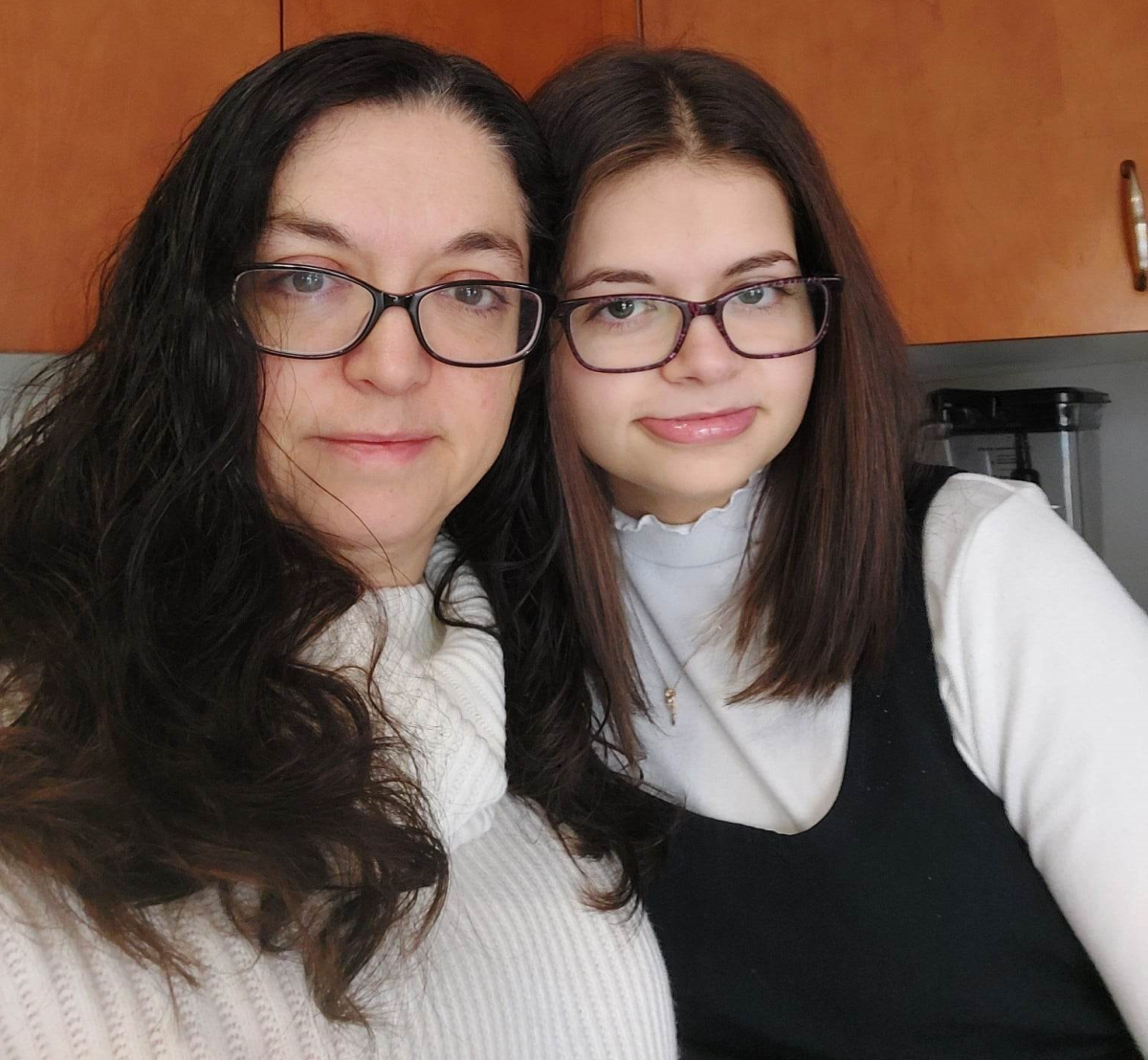Obsessive Compulsive Disorder or OCD can present itself in many ways, but for a young London woman who just turned 18, her compulsions have to do with harming herself or that something bad is going to happen her family.

“I’d wake up in the morning and I’d be fine. Then the next second, my brain would be telling me I need to go buy razors or something bad is going to happen to my family, or I need to swallow something, or I need to go to a place like the railroad tracks and sit there for a certain amount of hours until I complete that OCD thought or compulsion,” Mikayla Gheller said.
Mikayla is currently in an isolated room at London Health Sciences Centre. She says this isn’t where she needs to be, but right now, it’s the only place that can hold her. She has been told time and time again that her needs are too complex for the care available.
“It makes me feel hopeless,” she said. “How am I supposed to get better if no one will take me? It’s like I’m being expected to figure out on my own how to cope when that’s what the programming is supposed to do,” she said.
- Train goes up in flames while rolling through London, Ont. Here’s what we know
- Wrong remains sent to ‘exhausted’ Canadian family after death on Cuba vacation
- Liberals having ‘very good’ budget talks with NDP, says Freeland
- Budget 2024 failed to spark ‘political reboot’ for Liberals, polling suggests
Mikayla and her family have been desperately searching for more than a year for intensive inpatient mental health treatment and have been constantly turned away.
Now 18 years old, Mikayla said she has officially aged out of any available youth programming. If she was anywhere close to the top of the wait list before, she’s now back at the bottom, having just become an adult.
“I’m afraid that I’m just going to be going through the same cycle again,” Mikayla said, whose erratic behaviour and suicide attempts began when she was just 12 years old.
“I began experiencing severe anxiety and panic attacks that I couldn’t explain,” she said. “It was honestly like I woke up one morning and my entire life was surrounded by anxiety.”
Mikayla said she spent a lot of her teenage years going back and forth between the hospital and crisis centre, so much so that her parents were eventually told to stop bringing her.
She said that weekly therapy was ineffective, and that when she went to high school, everything got worse. More anxiety, more panic attacks, and then COVID-19 hit. Mikayla said this was when school became too overwhelming and she had to opt out.
Mikayla left home and moved into a local shelter. She kept speaking to doctors and would eventually be diagnosed with OCD. While she was grateful to finally have an explanation for how she was feeling, she said her behaviour started to escalate.
“I started doing dangerous things like going to bridges and railroad tracks,” she said. “At this point, I was kicked out of the shelter because there weren’t enough resources for my mental health.”
But now that she’s 18, her mother, Jeannie Gheller, is more concerned than ever.
Even before she was 18, Jeannie Gheller had a difficult time keeping track of what was happening with Mikayla.
“My daughter would go into the hospital and if she chose to not tell us what was going on, we didn’t know,” she said, explaining that she would often call the hospital and ask if Mikayla was there because simply because she “had a feeling.” Jeannie said that hospital staff would tell her that her daughter was there — but nothing more.
“Now as an adult, if she chooses in one of her emotional dysregulations when she’s going through crisis, to say, ‘I want no involvement with my Mom, I don’t want her to know what’s going on,’ she can discharge herself from the hospital and we would never know,” she said.
Right now, Jeannie is hoping that her daughter will be transferred to Parkwood Hospital in London, Ont. She said that Mikayla will be able to get some treatment, however, it still won’t be the appropriate therapy for her condition.
That’s why Jeannie has been working with LHSC to get Mikayla into Sunnybrook Hospital in Toronto. Sunnybrook is home to one of two OCD treatment facilities in Canada, and the only one in Ontario. Jeannie says she is hearing the wait list is 18 to 24 months.
“My daughter doesn’t have that time.”
The Ghellers aren’t the only ones facing roadblocks in the mental health system. Another London, Ont., family has been fighting for help and family members are now cautiously optimistic after a court ruled in their favour last week.
For Kellysue McNeil, she said it’s as though their prayers have been answered as the courts agreed that her 14-year-old daughter needs to be in a locked-down facility and must undergo a full mental and physical assessment. After that, they can figure out how best to move forward to help her daughter.
“I feel like I won the lottery. I really do,” McNeil said. “I feel like we’re getting momentum, but I don’t feel like the pressure’s off because it’s not over.”
She said that concerns remain about whether her daughter will be sent directly to a mental health facility after the assessment. If her daughter is sent to a facility, the family wonders whether it will be close by, or whether it will be far away, resulting in travel and accommodation costs.
“It is just so complicated and there are so many different aspects to this that literally tear the families apart,” she said.
That’s why McNeil, along with Gheller and a third London family, are coming together in wanting appropriate, accessible mental health supports, not just for their daughters, but for anyone struggling to find help.
“Somebody has to put a stop to this madness, and we have to get the politicians on board so that we don’t have to be in this kind of turmoil, so other families don’t have to go through this pain,” McNeil said.
If Gheller’s daughter doesn’t get into Sunnybrook soon enough, she said that the only other option for Mikayla is an out-of-country treatment facility, and that comes with its own challenges, including program and therapy costs, travel, and being away from their family support.
A GoFundMe has been set up to help the Gellers as they continue to search for help for their daughter.
As for Mikayla, she said that she just wants someone to step up and take responsibility for her care — someone other than her parents who have already been doing all they can to help her.
“I want the adequate care I should have gotten the first time I started seeking help,” she said. “I’m an adult now and I’m afraid I’ll just have to restart everything and deal with all the advocating I’ve done for myself all over again.”
“I want the treatment for these thoughts that consume me every day.”

If you or someone you know is in crisis and needs help, resources are available. In case of an emergency, please call 911 for immediate help.
Crisis Services Canada’s toll-free helpline provides 24-7 support at 1-833-456-4566.
Kids Help Phone operates a toll-free helpline at 1-800-668-6868 with 24-7 support for young people as well as the Crisis Text Line, which can be reached by texting HOME to 686868.
The toll-free Hope for Wellness helpline provides 24-7 support for Indigenous Peoples at 1-855-242-3310. Online chat services are also available.
Trans Lifeline operates a toll-free peer support hotline for trans and questioning people at 1-877-330-6366.
For a directory of support services in your area, visit the Canadian Association for Suicide Prevention at suicideprevention.ca.











Comments